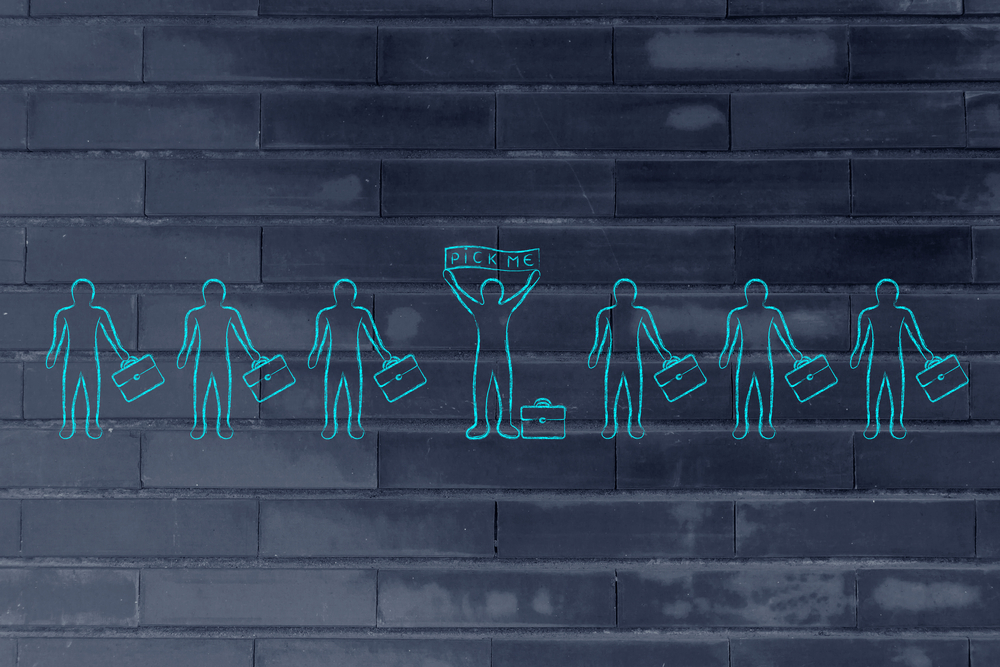2016: C*, my first therapist, and I are on the phone when she says, “I’ll send over a draft of the article I’ve been working on. Your job is to edit it, put it in your voice, and then post it on your site. You’re getting a lot of traffic and interesting clients these days, so be sure to include the links back to my site too, ok? This piece needs to work for both of us.”
I have trusted C* to help me heal. I have trusted her with some of my deepest insecurities.
Her request that I post an article about her skill as a therapist with a link back to her site confused me. It seems like she’s using me.
Yet, we are in the middle of the therapeutic process. I have been talking to her for 2-3 hours a week for several weeks. Following her instructions has improved my life. Suddenly removing my trust would be incongruent. In a way, I worry that if I don’t follow through with the article, I would hinder my progress or upset her.
I told a few of my friends about C*’s request to post an article promoting her business, and they were enraged. They helped me see just how unethical she was. One even offered to call and threaten legal action.1
I never spoke to her again.
***
In retrospect, C*’s actions were obviously unethical. Still, C*’s behavior was fairly mild compared to other forms of therapeutic abuse. One of my close friend told me that her therapist made sexual advances on her during sessions.
Finding a good therapist is harder than it should be. Because of the mental health stigma and the difficulty in finding a good therapist, many people give up hope about healing their mental wounds or turn to unqualified life coaches with fancy marketing.
This is the second article in a two-part series on mental health. The first article discussed the taboo around mental health, especially amongst men. This one will outline how to find an effective and ethical therapist who will be able to help you. It will also cover the advantages and disadvantages of other approaches to healing.
Why I wanted a therapist instead of a life coach or plant medicine

Many people struggling with mental health turn to self-help or coaching rather than therapy. A much smaller (but growing) population turn to psychedelics, or “plant medicine.”
Before seeking counseling, I invested a lot of time and money into self-help and coaching. The results were shitty. At best, a good book or a charismatic coach offered something akin to a sugar high. At worst, they messed me up.
Since I’ve already detailed my views on why I think life coaches do more harm than good here, I’ll stick to the topic of finding a good therapist in this article.
Plant medicine presents an interesting issue. These days we all know someone who has taken MDMA, mushrooms, LSD, ayahuasca, or some other form of psychedelic, only to report that they have been “cured” or maybe even enlightened.
In fact, there is a growing body of research suggesting that plant medicine can heal certain psychological wounds. I’m optimistic, but going down that path presents a whole new set of problems.
First, you have to find a reputable provider. While they certainly exist, finding them can be difficult because the doctors working in plant medicine are either underground or practicing in a different country. Working with a bad provider or attempting to self-medicate creates a huge amount of risk.
Second, you have to ensure that the drugs you’re doing are pure. Even with established “Plant Medicine Centers” in Central and South America, treatments are often laced with additional substances. The only available alternative is buying drugs on the street, which is always dumb.2
Finally, many of the people who claim to be cured by psychedelics seem to still be ruled by the same demons that have always possessed them. More than that, they appear mildly addicted as they discuss their fairly regular “maintenance doses.” It seems that plant medicine offers a blend of gentle addiction complimented by the illusion of health while failing to achieve the goal of healing the individual.3
For all of these reasons, I realized that I needed to talk to a therapist. I suspect I’m not unique. Virtually all self-help, coaching, personal development, and plant medicine junkies would likely be better served by a therapist, but most are unwilling to admit that they need help.
The singular best way to find a good therapist (and a close second)

After my experience with C*, I knew that I needed to be careful in my approach to finding a therapist. After a lot of research and experimentation I learned that the best way to find a great provider is to ask a trusted mental health professional for a recommendation.
In my case, I have a close friend, B*, who is a talented mental health professional. I told her a bit about the problems I was facing and asked, “Do you know of any therapists who would be a good match for me?”
B* gave me a list of therapists and helped me get in touch with them. This led me to P*, a wildly talented practitioner who helped me heal wounds that I didn’t even know existed.
Of course, this creates a chicken and the egg problem for many people. Luckily, there’s another approach that works well.
Tell a few close friends that you want to improve your mental health. Ask if they know of any good therapists or contacts that may be able to make a recommendation. You’ll be surprised to find that many people you know – including those close to you – have quietly seen a therapist at various points in their lives.
If neither of those techniques work for you…
If neither of those techniques works, don’t worry; there are other approaches:
- Call or email 5-10 therapists in your area to ask who they recommend you speak to. Doing so will generate a list of admired and likely effective therapists in your community.
- Ask your primary care physician for a recommendation.
- If you work with a chiropractor, nutritionist, physical therapist, or other individual in the health and wellness space, she’s likely able to make a recommendation.
- If your company has a Human Resources representative, ask her.
- If you’re a member of any sort of support group like a 12-step program, a men’s or women’s group, a business mastermind, or anything else where people are encouraged to be open and honest with one another, check there.
- If you are a member of a spiritual or religious community, the head of that community should be able to make a good recommendation.
If you can, avoid searching online for a therapist. That’s how I came across C*. However, I understand that for many people searching online is the best option. If that’s the case, be sure to pay extra attention to the guidelines below.
6 Things to consider when evaluating a therapist

Approach finding a great therapist in the same way you would approach looking for a great surgeon. When you find the right provider, you’ll know it. Though you may struggle a bit to open up and be vulnerable at first, you won’t question whether or not this person is trustworthy and capable. Determining whether a therapist is right for you may take two or three sessions before you have clarity.
Keep searching until you find someone that you trust, respect, and have a strong sense of rapport with. If something feels off, leave. Don’t worry about hurting the therapist’s feelings. Seriously. If you’re unsure about a situation explain it to a few friends or family members and trust their opinions.
In addition to trust, respect, and rapport – which are non-negotiable – the following guidelines were important to me when I was shopping for a therapist. Consider whether or not they matter to you.
1) What does your gut tell you? Honestly, my gut told me to run the hell away from C*, but I didn’t trust myself. If your gut tells you that this is a bad provider, then keep shopping.
2) Is she making promises she can’t keep? I asked the therapists I interviewed, “Will I be able to get better?” While this was a vulnerable question, it offered great insight into the therapist’s integrity. If she said, “Yes, I can 100% heal you,” then I knew she wasn’t the right one. Someone who promises results is either lying or ignorant. A provider cannot promise that she’s capable of healing you. There are too many variables outside of the practitioner’s control.
A much more grounded response is something along the lines of, “What I can promise is this: I’ll do my absolute best to help you. My patients tend to get better, so I’m optimistic about your future. Still, no one can promise results.”
3) Do her clients work with her for a while and then leave? If so, that’s a good sign. Staying with the therapist indicates that her patients trust her. Leaving after some time suggests that her patients tend to heal. If her clients stay with her forever (indicating a sense of dependency) or for just a short period of time (indicating a lack of faith), there’ a good chance that they are incompetent.
4) Does the therapist provide an off ramp for her patients? Many therapists work with their patients for years at a time without any clearly established guidelines for figuring out when / if the patient should end treatment. Personally, I wanted something more defined. I wanted to put concentrated effort into healing, and then taper off therapy as I began to feel healthy. My therapist encouraged this approach, which is one of the many things that helped me realize she was right for me.
5) What modalities do they incorporate? There are a wide variety of therapeutic modalities ranging from those that are firmly grounded in science to others that have no scientific basis.
When considering a therapist, consider which modalities she incorporates. Does her approach make sense to you? If so, that’s a good thing. My experience combined talk therapy and Eye Movement Desensitization and Reprocessing (EMDR). There’s no right or wrong approach here, but it is important that you respond well to methods your therapist uses.
In general, if you trust your therapist, it’s reasonable to trust the modalities she suggests. I was skeptical of EMDR when we began. However, it turned out to be incredibly healing, useful, and efficient.
6) What type of provider do you need? There is a wide variety of psychotherapists, ranging from those with an education but no licensure, through those who are licensed Medical Doctors.
Depending on the mental health issues you need to address, you’ll want to consider what level of training and licensure is required.
Though classifications of different therapists are too nuanced to get into here, in most cases starting with a Licensed Professional Counselor (LPC) with a good reputation is a safe bet. LPCs are educated, licensed, and often covered by insurance.
If you need a different provider or some sort of prescription, your LPC will be able to refer you to a specialist.
It takes a village…

As I mentioned in the first article, discussing mental health and getting good information about it is tricky. There’s a big ass stigma around it, and there are a ton of shitty providers.
If you have additional guidelines or tips for finding an effective therapist, please leave them in the comment section below. I’ve set it up so that you can use a pseudonym if you’re not comfortable using your real name.
Post script: What you should do if your therapist is abusive
If you’re a victim of therapeutic abuse, I feel for you. As I mentioned, my first therapist tried to take advantage of me.
If you suspect that your therapist has engaged in abusive, exploitive, inappropriate or unethical behavior, I urge you to report her to her licensing board. The easiest way to do this is by searching for “[your state/country] licensing board for therapists/psychologists/psychiatrists.”
From there, contact the board and issue a complaint. If it’s not obvious who you should speak to, go to the contact page on their site and ask.
Your courage in reporting bad therapists will prevent future cases of therapeutic abuse, and that is a gift to the world.
Footnotes
- Unfortunately, that’s not even the worst of it. When it became obvious to C*, a 70-something married woman, that I was cutting her out of my life, she told me that she loved me and proceeded to text, call, and email me for several weeks.
- If you do this, please – PLEASE – get your drugs tested for purity before using them. You can buy testing kits online and many cities have non-profits, like MAPS, that will test your drugs for you.
- I know that many of my friends – and probably readers – will strongly disagree with my stance on plant medicine. While I have no moral or ethical problems with drugs – in fact, I think that they should be decriminalized – I suspect that virtually everyone who is using psychedelics as a form of medicine would be better served by a good therapist.
Hi Jason,
I continue to find your emails helpful and thoughtful (I anticipated thinking after the first one or two, how do I get off this shitty subscription feed now). Not the case. Kudos and keep up the great writing/reflections/helpful advice.
I’m writing with a tip since I went through this quite recently. From a colleague who (kindly) said, “you need a therapist” to me thinking, well how the f*** do I actually get one…? I went through it. I didn’t know how to begin.
I will respond to your point about online searching. For some that’s the only option. I didn’t want to go around asking people, and I have an aversion to doctors (though I did see one, eventually, on the advice and with the confidence of the talented therapist I found). How I did it: I spent several hours (maybe a full day) searching Psychology Today (https://therapists.psychologytoday.com/rms). Punch in your location and it gives you the details of all providers, from licensure to insurance to areas of practice and methodology (including EMDR, which intrigues me).
I didn’t for instance, want a marriage counselor or someone not familiar with my issues. I wanted to carefully read their self-description and how they spoke about their methodology. I needed my insurance accepted! And of course I wanted convenience and someone nearby. And no men. Anyway, I narrowed it down to about 5 female therapists and called them all. Two were not accepting new clients, and one was wierd on the phone. I made an appointment with my top candidate from the down-select, and was lucky to get it right the first time (not always the case).
She has been very helpful so far, and didn’t balk at all when we both agreed I was doing better (antidepressants work), and could meet next month instead of next week. (Jason’s rule #4).
Thanks for the post!
Suzanne
Suzanne – first of all, your line, “I continue to find your emails helpful and thoughtful (I anticipated thinking after the first one or two, how do I get off this shitty subscription feed now)” nearly made me spit out my drink with laughter. Honored to still have you as a reader. 🙂
Also, I think your suggestions are great. A lot of people for one reason or another will turn to finding a counselor online. If someone is going that route, it’s best to do what you’ve outlined: figure out what you want / need in a therapist, be thorough in your search, take your time, actually connect on the phone, then continue to evaluate them in person. Love it.
And THRILLED to hear you’re doing better too. I appreciate the comment, Suzanne.
Hahaha Jason – it wouldn’t be funny if it weren’t true.
P.S. C* sounds so creepy and absolutely unethical – glad you extricated yourself. But your experience with C* touches on an important point, that you’ve covered well – therapists can sometimes do more harm than good. It takes such courage to seek help – this is when we are at our most vulnerable. When I once sought therapy about 15 years ago for completely different issues, I had nowhere near as good an experience (as recently). One meeting seriously left me feeling worse about myself than before.
P.P.S. We all have issues. Viewing the world as “everyone has a sack to carry” has helped me.
My experience is somewhat similar to Suzanne. I’ve typically found therapists through psychologytoday.com .
I’ve also tried about eight different therapists (one for 1.5 years) since 2007 before I landed on my current one. She’s great and I plan to stick with her until I move out of the country. Sometimes it will take a long time to find one that clicks. And they may disappoint you after you relax into the relationship thinking “this is it.” That’s okay.
Offtojog – I appreciate the comment, and it’s re-assuring to hear that you’ve also had success being extremely thorough and thoughtful in an online hunt. Also, your point that therapists ability to help evolve over time is a pretty sharp point. Thanks for adding that and thrilled to hear you found a good one. Safe travels.
Thanks, Jason! In my own personal experience, the only truly phenomenal therapists I have seen have been affiliated with other highly regarded institutions (like Universities). Sort of like asking around for a referral–you can also look for these types of affiliations where the bar for practicing is very high. For example, the best therapist I ever worked with was here: http://psychology.yale.edu/research/clinical-psychology/ypdc/yale-psychology-department-clinic
You’re welcome, Emily. 🙂
It never even occurred to me to filter therapists through the lens of their professional associations. While I think it’s still really really important that the patient evaluates and considers any given individual that he or she works with, I also think you’re totally right: you can speed up success by turning to affiliations that have already earned your trust. Good call Emily!
I love your suggestion that you ask any friends you have in the mental health business about a therapist that may be able to help you with your specific issues. My brother has been experiencing PTSD since he was discharged and he’s finally decided to seek help. I’ll be sure to tell him to ask some of his friends that have a connection to mental health what therapist they would recommend for him to go see.
So glad to hear it, Ashely. And I’m thrilled to hear that your brother will be getting help. This can be hard for people – especially men – and I think it’s great you’re supporting him.